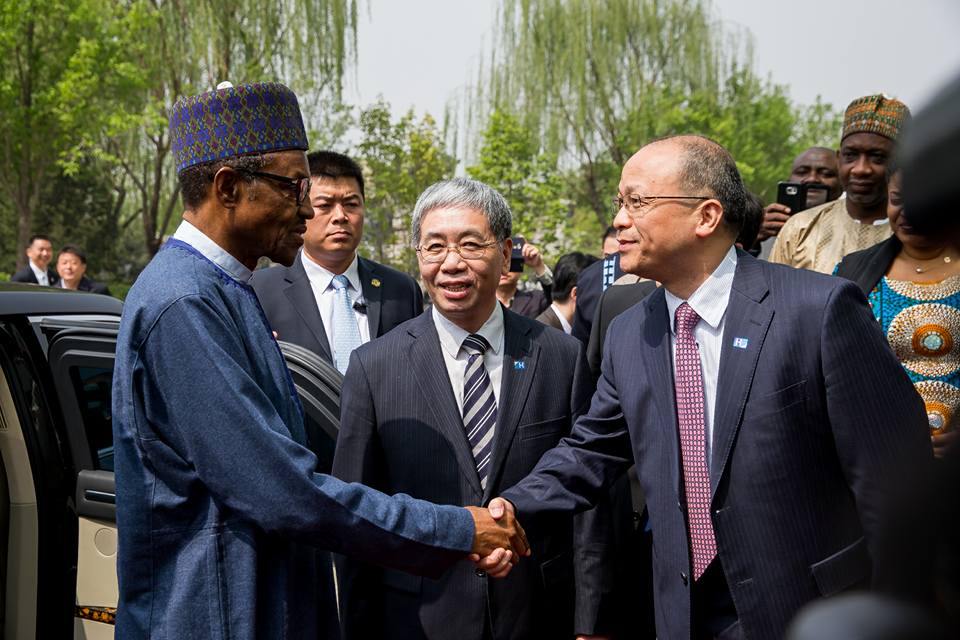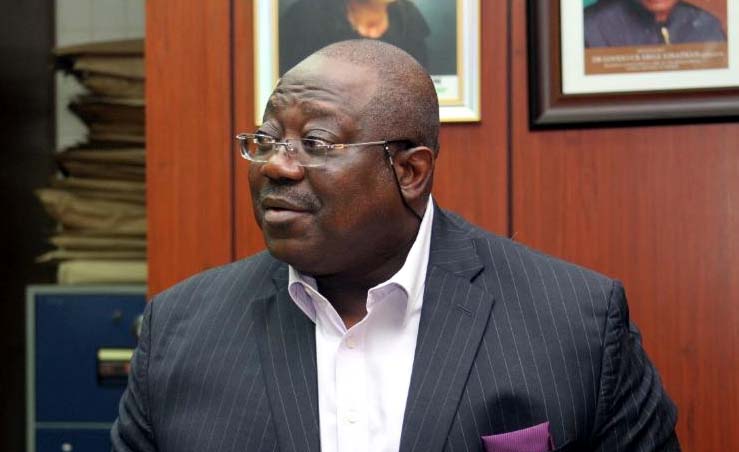By Mohammed Shehu Laminu
Nigeria’s systematic decline in foreign exchange reserves has been a prevailing theme for months now, despite efforts from the Central bank to maintain the balance between supply and demand. Add to that a rapidly weakening Naira, which has fallen from N155 by more than forty seven percent against the US dollar since the beginning of 2016, the nation could be in for intense hardships in the not too distant future.
The Country’s Foreign Reserves currently stand at $27.8 billion. The decrease was occasioned by import pressure and the susceptibility of Nigeria’s main exports – namely crude oil.
It is increasingly evident that the nation simply cannot rely on just one market sector for over half of its total foreign exports. The commodity crude is the main driver of the Naira appreciation, exactly how the nation will boost its currency’s value is a growing concern. Relying so heavily on a mono commodity-based sector makes the economy incredibly susceptible to market volatility and puts it in a vulnerable position.
The high and excessive depreciation of the Naira and inability of policymakers to ensure some stability is a mind boggler. The pressure on the Naira both in terms of level and volatility has never been so high.
Advertisement
Recent attempts by the Central Bank of Nigeria, to curb the excessive development in the exchange rate have only led to short live appreciation of the Naira creating greater volatility and uncertainty problems.
Import restrictions policies and other regulations showed immediate results but boorish and hurried import restriction policies could even have a more serious impact on the economy. In the scheme of things as the economy is largely import based, such policies can lead to shortage of essential commodities, higher inflations, falling standard of living and falling government revenue among others.
Some economists have criticized the Federal Government of Nigeria for not devaluing the Naira. Puzzlingly too, many economists and politicians who have extensively commented on the weak Naira, are short of practical, direct and doable immediate solutions.
Advertisement
Neo-liberal economic fundamentalism pervades everything. There is no boundary between economic, social, environmental or other policies. Those who focus on narrow sectoral concerns and ignore the pervasive economic agenda will often lose their own battles and weaken the collective ability to resist. Leaving economics to economists is fatal. Neo-liberal theories are riddled with dubious assumptions and internal inconsistencies, and often lack empirical support. These right-wing theories need to be exposed as self-serving rationalizations which operate in the interests of the elites whom the policies empower.
However, if a more diverse range of exports is produced, reserves could be built up again, and the economy would be less vulnerable to the potential instability of one industry. Nigeria is a highly import-dependent economy – though Government insists that all it needs is time to produce more goods for export in the Agriculture and mining sector of the economy.
Counter-intuitively, the weak Naira could prevent the nation from increasing and diversifying its exports, as the price of foreign imports required for the production process are rendered more expensive thus; Government may need a bit of time to start producing more exports. Consequently interest rates will continue to remain so high, until Government stabilized the economy and interest rates come down, diversification of exports will still be a problem. We have more demand for forex than we have supply.
A country can experience current account deficit for some time and still maintain a stable currency. This can happen if the country can attract strong financial inflows—Donor support and remittances, concessionary loans, Foreign Direct Investments (FDIs), Eurobonds, Local and Foreign Deposits from Nigerian expatriates (LCDs and FCDs) etc. The balance of payment consists of two main components: current account and financial account. Deficits in currents account has to be compensated by a surplus in the financial accounts. Part of the downward pressure on the Naira is as a result of weak financial inflows, particularly from traditional sources (Crude oil), which is limiting supply of foreign currencies.
Advertisement
If the current account deficit cannot be cut immediately and traditional sources of foreign inflows are dwindling then it makes sense to think about new sources.
According to a World Bank report, the size of Nigeria’s remittances has been rising every year over the last decade. For instance, from $16.93 billion in 2006, it rose to $20.83 billion in 2014. It, however, fell slightly to $20.77 billion last year. Diasporas and their economic status in their adopted countries are fast becoming a source of pride as well as financial resources for developing countries. If seeking remittances is a way of tapping into diaspora income flows on a regular basis, issuance of hard currency–denominated bonds to the diaspora is a way of tapping into the latter’s wealth accumulated abroad.
As a remedy to stabilize the Naira sustainably, finance our imports and; diversify our export through agriculture and other mineral resources the Federal Government should issue a Diaspora bond to its expatriate citizens’ resident in Diaspora to tap into their savings. Diaspora bond is a debt instrument issued by a country to raise financing from its overseas Diaspora usually during the period of balance of payment crisis or to fund infrastructure projects. It is an alternative to borrowing from the global financial institutions, capital markets or bilaterally from other governments. Issuance of such a bond would increase reserves, avert/resolve balance of payment problems, enable the country to retire other problematic external debts and it will strengthen the Naira. Israel, India, Ethiopia and Lebanon are forefront examples of countries that have used Diaspora bonds to turn things around. Lacking good credit rating, and given the perception by investors that investments in Nigeria can be risky, the Country need innovative financing mechanism and that mechanism is the issuance of Diaspora Bond. Nigeria must be prudent and cautious in resorting to market- based sources of finance. Otherwise the Country may run the risk of accumulating excessive debt burden.
Diaspora bonds are denominated in foreign currency but can either be paid back in either foreign or domestic currencies. This vehicle could allow investors to secure the value of their investment in a hard currency but at the same time allow the country to borrow hard currency and pay back in domestic currency, thereby limiting debt burdens. Apart from interest earnings, patriotism and implicit charity drive interests in Diaspora bonds. While Diaspora bonds can be a low cost and stable source of finance, the Diaspora investors may see it as both investment opportunity and an opportunity to help their home country. The Nigerian Diaspora investors may initially provide little patriotic discount, but prices could be less than that of the Eurobonds, and investment not being paid back in foreign currency and chances of non-repatriation are pluses.
Advertisement
A majority of Nigerians believe in their culture of investing back home in the overall benefit to the aspirations of the nation’s development agenda. A lot of Nigerians in Diaspora show a high degree of patriotism to their country and will engage in Diaspora bonds if the right investment climate is created and promoted. There already are a number of them and some organizations engaged in micro-financing of small infrastructure projects such as school building projects and financing the education of children from poor backgrounds in communities they originated from, which is a clear signal that there is potential for this facility to prosper if government initiates efforts to tap the Diaspora market using instruments such as the Diaspora bonds are properly introduced into the market.
The main objectives in managing a stock of reserve for any developing country, including Nigeria, are preserving their long-term value in terms of purchasing power over goods and services, and minimizing risk and volatility in returns. Over the years most developing Countries have followed a policy to build higher levels of foreign reserve that take into account not only anticipated current account deficits but also liquidity at risk arising from unanticipated capital movements. Accordingly, the primary objectives of maintaining foreign reserve are safety and liquidity; maximizing returns is considered secondary. In Nigeria, reserves are held for precautionary and transaction motives to provide confidence to the markets, both domestic and external, that foreign obligation can always be met.
Advertisement
It is rather surprising Nigeria is still yet to explore the Diaspora bond as the thought has been around since mid-2000s. Some constraints to successful issuance of Diaspora bonds are complexities of bond instruments, limited awareness by policymakers, unfamiliarity of regulators of such bonds, registration with regulating agencies such as US SEC, dealing with rating agencies and identifying sizeable number of wealthy Diaspora. Some of the investment options may not even require the use of international retail market, meaning the Central Bank of Nigeria in some cases can bypass external regulation with direct issuance just as the Treasury bills.
AGRICULTURE
Advertisement
In the 1960s, before it turned to oil, Nigeria was one of the most promising agricultural producers in the world. Between 1962 and 1968, export crops were the country’s main foreign exchange earner. The country was number one globally in palm oil exports, well ahead of Malaysia and Indonesia, and exported 47 percent of all groundnuts, putting it ahead of the US and Argentina; but its status as an agricultural powerhouse has declined, and steeply. While Nigeria once provided 18 percent of the global production of cocoa, second in the world in the 1960s, that figure is now down to 8 percent. And while the country produces 65 percent of tomatoes in West Africa, it is now the largest importer of tomato paste. Nigeria’s oil has come at the detriment of the agriculture sector, and that is why we had a rising poverty situation. We were having growth but without robust growth able to impact millions of people because it is not connecting to agriculture.
EMPHASIS
Advertisement
In order to reduce the pressure on the Country’s reserves the Diaspora Bond proceeds would be used in financing importation. This is with a view to enhancing the Country’s exports on Agriculture. The Central Bank will avail foreign exchange to a willing importer at a fixed rate of say N200/$ and in exchange the importer will provide any exportable Agricultural commodity as Naira equivalent. All exportable agricultural products will be purchased by the Commodity Exchange on behalf of the Government from the importer in Naira and at prices quoted on the Commodities Exchange or as market dictates.
The exchange will issue a warehouse receipt stating the quantity, quality and the total price of the commodity which will serve as instrument of bidding for FX from the Central Bank. The Exchange’s warehouse operators will act as collateral manager/ custodian of commodities for a fee. This concept will stimulate Agriculture, enhances industrial growth, food security, create employment and boost our export. It will trigger demand for Agricultural commodities. Importers and multinationals that desire FX to import or repatriate their profits will go to our teaming farmers and source for commodities and; local industries that desire raw material to process finish goods for export will equally go to these farmers.
Consequently demand for commodities will be high and where demand does not meet supply; importers will be left with no option than to develop the Agricultural sector by identifying small farmers and assisting them with improve seedlings, farm inputs and equipments or establish their own farms thus generating employment in the value chain as well as boosting Agriculture. It will enable agro-commodity merchants, exporters and industrial end users to have access to reduced transaction costs in terms of cost of logistics and aggregation of commodities. It will equally ease the pressure on the Country’s foreign reserves.
It will encourage increased production of agro-commodities as farmers would have ready access to an efficient market. It would enable food processors to have ready supply of traceable, quality certified inventories; be assured of timely delivery of supply, freeing them from the expense of stockpiling; and price products appropriately owing to improved operational efficiency.
Government will only be saddle with the responsibility of providing extension workers. The neglected sector over the years will hence flourish as private sector will now be the drivers; eventually Agriculture will become a major foreign exchange earner for the country. If Nigeria could produce and sell one million tonnes each of beans, groundnuts, soya and Ginger, Cotton, Cocoa, Shea butter, cassava to an international market, the country could replenish its foreign exchange reserves in just one year.
If the Government can get Nigeria’s estimated two million Diaspora population, buying an average of $5,000 worth of dollar, the country can easily raise $10billion to fund its imports and boost exports and by so doing have enough reserves to stabilize the Naira. Market forces might even make the Naira to appreciate.
It is believe that competitive currencies contribute to the existence and maintenance of a dynamic Agricultural and manufacturing sector in the economy. This, in turn, brings about higher growth rates in the long run, given the existence of increasing returns in the industrial sector, and its importance in generating technological change and increasing productivity in the overall economy.
The recent visits of His Excellency to Europe, America, Asia, Middle East and some other African Countries and the rapport of your Adviser with Nigerians in Diaspora will immensely contribute to the success of the proposition.
Laminu can be reached at [email protected]
Views expressed by contributors are strictly personal and not of TheCable.






